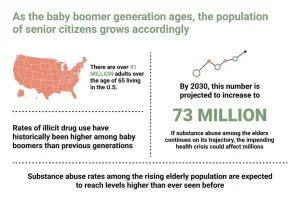
Clinicians should be fully aware that fetal alcohol syndrome is preventable. In many cases, prenatal alcohol exposure is unintentional because women continue their normal drinking patterns before they know they are pregnant. https://ecosoberhouse.com/ Most women stop drinking alcohol once made aware of their pregnancy. Despite this fact, 7.6% of women report continued drinking during pregnancy. To improve outcomes, education emphasizing abstinence from alcohol is vital.
How is fetal alcohol syndrome diagnosed?

Prevention of fetal alcohol syndrome is the responsibility of all healthcare workers. The composition diagnostic team varies based on the age of the patient. Early diagnosis and early intervention significantly improve long-term outcomes for people with FASD.
Goal of Fetal Alcohol Treatment
- For example, a math tutor could help a child who struggles in school.
- This can cause the alcohol levels to remain high and stay in your baby’s body longer.
- Effects may include physical, mental, behavioral, and/or learning disabilities with lifelong implications.
- Adolescents exposed prenatally to cocaine, alcohol, or cigarettes showed reductions in total brain volume and in gray matter in the brain’s cerebral cortex, important in many cognitive functions.
- Children with FAS are especially likely to develop problems with violence and substance abuse later in life if they are exposed to violence or abuse at home.
They might present as hyperactivity, lack of coordination or focus, or learning disabilities. FAS is a long-term disability that affects children from birth. It occurs when a fetus becomes exposed to alcohol during pregnancy. Early detection and treatment can help children learn vital skills and improve their chances of being able to live independently as adults. This exposure typically occurs when a pregnant person drinks alcohol, and it enters the fetus’s bloodstream through the umbilical cord.
Symptoms and Causes

They may be able to direct you to further options for achieving your goals and provide the medical care that may be necessary to withdraw from alcohol. Alcohol was not viewed as dangerous for pregnant people until 1973 when the diagnosis of FAS was first implemented. However, the Food and Drug how to treat alcoholism Administration (FDA) did not make a public awareness announcement about the side effects of alcohol use during pregnancy until 1977. Because many people do not know they are pregnant during those first few weeks, the risk of FAS increases if you drink alcohol and have unprotected sex.
How are fetal alcohol spectrum disorders diagnosed?

FASD can affect children in profound ways—physically, mentally, and emotionally. A child’s overall emotional well-being is often compromised by FASD, says Kristina Uban, PhD, developmental neuroscientist and assistant professor at the University of California, Irvine – Program in Public Health. Fetal Alcohol Syndrome and Fetal Alcohol Effects are 100% preventable for a woman who completely abstains from alcohol during pregnancy.
- “Alcohol can interfere with the way that nerve cells develop and how nerve cells connect to each other in different parts of the brain, which therefore can affect their functioning,” she says.
- FAS symptoms include distinctive facial features, lower-than-average height and weight, and problems with brain and nervous system development.
- If the child is more than 3 years of age, parents or caregivers can talk to a pediatrician and contact any nearby elementary school to ask for an evaluation.
- Fetal alcohol syndrome is diagnosed based on physical features alone, while other diagnoses may involve confirmation of alcohol exposure.
- Many drugs can pass from a mother’s blood stream through the placenta to the fetus.
- If you’ve already consumed alcohol during pregnancy, it’s never too late to stop.
And other disorders, such as ADHD (attention-deficit/hyperactivity disorder) and Williams syndrome, have some symptoms like FAS. FASDs can occur when a person is exposed to alcohol before birth. Alcohol in the mother’s blood passes to the baby through the umbilical cord. There is no “safe” amount of alcohol you can drink during pregnancy.
Behavioral Issues
